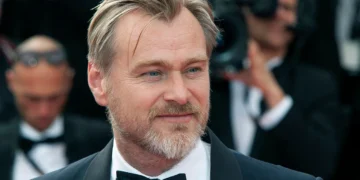In the vast landscape of French cinema, names like Jean-Luc Godard, François Truffaut, and Gérard Depardieu often dominate the conversation. But behind the curtain, shaping narratives, guiding performances, and preserving the artistry of French film, there exists a quieter force—Yves Depardieu. Not to be confused with the globally recognized Gérard, Yves has carved a niche for himself as a director, writer, and mentor to a new generation of filmmakers. While the surname may spark curiosity, Yves’ journey and influence are distinct and deeply rooted in passion for cinema as both craft and culture.
Contents
A Cinematic Legacy in the Shadows
Though lesser known to the international mainstream, Yves Depardieu has long been a respected figure within French artistic circles. Born in Lyon in the late 1960s, Yves was immersed in a world of creativity from a young age. His mother was a costume designer for stage and screen, and his father, a literature professor with a deep appreciation for 19th-century French poetry. This blend of visual and literary influence would later define Yves’ storytelling style—visually rich, emotionally complex, and delicately poetic.
Interestingly, Yves avoided the celebrity spotlight, even when working on successful projects. Unlike some of his contemporaries, he has never been drawn to fame. Instead, Yves chose to invest in the depth and authenticity of his art, often collaborating with smaller studios and independent theaters. His philosophy is simple: “Cinema is not a product. It is a mirror. Sometimes it flatters, sometimes it frightens. But it always reflects something true.”
From Theatre Roots to Film Fame
Yves Depardieu’s career began not behind the camera, but on the stage. In the early 1990s, he directed several experimental theater productions in Marseille and Paris. These productions were often adaptations of forgotten or obscure literary works, updated with modern themes and innovative staging. One of his most acclaimed early works was Les Ombres du Cœur, a haunting play that explored love and memory through a surrealist lens.
His transition to film came in 1997 with the indie film Sables Mouvants (Shifting Sands), a melancholic drama set in a decaying coastal town. Though produced on a modest budget, the film was praised for its cinematography, intimate performances, and dreamlike atmosphere. Critics noted Yves’ ability to draw raw, vulnerable performances from his actors—many of whom were relative unknowns at the time.

Champion of New Talent
One of Yves Depardieu’s most enduring contributions to cinema is his unwavering support for emerging talent. Whether through casting decisions, mentorship, or co-writing scripts with young screenwriters, Yves has built a reputation as a generous collaborator.
He founded the “Nouveaux Regards” initiative in 2005, a program designed to provide financial and educational support to first-time filmmakers. The initiative not only offers grants and resources but also includes mentorship opportunities with experienced directors and editors. Many now-prominent French directors credit Yves with giving them their first real opportunity in the industry.
In interviews, Yves is often humble about his role. “I just try to open the door that was once opened for me,” he says. “Cinema thrives when it listens to new voices.”
A Unique Filmmaking Style
Yves Depardieu’s films are instantly recognizable for their meditative pacing, minimal dialogue, and lush cinematography. His works often explore themes of memory, identity, and dislocation. Rather than conventional plot-driven narratives, Yves prefers character studies and internal journeys.
In his 2011 film Le Silence des Arbres (The Silence of Trees), he tells the story of a botanist returning to his childhood home after 40 years. Through quiet scenes and symbolic imagery, the film becomes a meditation on aging, nature, and the fragility of human connection.
Yves often works with the same group of collaborators—cinematographer Camille Legrand, composer Théo Marchand, and editor Sophie Lamotte—forming a creative team that shares his vision. Together, they build films that are as much about what is unsaid as what is spoken.
International Recognition
Though Yves Depardieu has never chased international acclaim, it has gradually come to him. His films have been featured at the Venice Film Festival, Berlinale, and TIFF. In 2019, his film La Mer en Hiver (The Sea in Winter) won the Jury Prize at the Locarno Film Festival. The film, a portrait of grief and healing set in Brittany, was praised for its honest portrayal of emotional trauma and its hypnotic visuals.
American and British film scholars have also taken interest in Yves’ work, often citing him as part of a “slow cinema” movement that includes filmmakers like Abbas Kiarostami and Apichatpong Weerasethakul. Yet Yves remains modest. “I make films the way some people write letters,” he once said. “It’s personal. Sometimes someone reads it and feels something. That’s enough.”
A Private Life, Lovingly Guarded
Despite his growing reputation, Yves Depardieu remains an intensely private individual. He rarely gives interviews and avoids public events unless they are directly related to film promotion. Friends and colleagues describe him as introspective, gentle, and deeply philosophical.
He lives in a quiet village near Avignon, where he spends his time gardening, reading, and writing. It’s said that his home contains thousands of books, a record player, and only a single television set—used exclusively for watching films. For Yves, life and art are inextricably connected. He once described filmmaking as “a way of living slowly, with attention and care.”
The Future of Yves Depardieu
In 2024, Yves Depardieu announced a new project—a semi-autobiographical film titled Le Rêve de l’Hirondelle (The Swallow’s Dream), based on his early years in Lyon. The film is expected to be his most personal work yet, exploring themes of artistic ambition, family expectation, and the search for creative identity.
As French cinema continues to evolve in the age of digital streaming and global audiences, voices like Yves Depardieu’s remind us of the enduring value of authenticity, subtlety, and human connection. His work may not top box office charts, but it lingers in the minds and hearts of those who experience it.
In a world of noise, Yves Depardieu offers a quiet, persistent song—a melody of truth, beauty, and thoughtfulness. And perhaps that is what cinema truly needs today.































